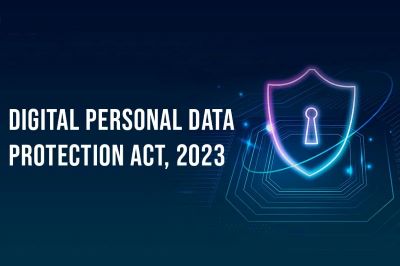Context-
In August 2023, India welcomed its inaugural comprehensive data protection law, the Digital Personal Data Protection (DPDP) Act, 2023. Crafted to navigate the complex landscape of personal data usage, the law is centered on the pivotal concept of user consent. It delineates fundamental rights, imposes obligations on corporations, and establishes a redressal mechanism for grievances. However, beneath its surface lies a potential challenge to journalistic free speech, stemming from the absence of a 'journalistic exemption' in the final enactment.
The Invisible Impact on Journalistic Free Speech:
The absence of a 'journalistic exemption' within the DPDP Act has stirred concerns regarding its repercussions on journalistic endeavors. Traditionally, data protection laws have granted exemptions to journalistic activities, liberating journalists from the burdensome obligations of user notification and consent acquisition. While three earlier drafts of the DPDP Act included such exemptions, the final law notably omitted them. The Editors Guild of India, echoing these apprehensions, implored the government to reinstate journalistic exemptions to safeguard the integrity of journalistic free speech.
The Interplay of Privacy and Free Speech:
Privacy intertwines with journalistic free speech in intricate ways. Consider a scenario where a journalist delves into the performance of a Member of Parliament (MP), relying on intricate details such as their meetings, travel itineraries, and financial disclosures. This trove of information, categorized as 'personal data' under the DPDP Act, necessitates consent for utilization. Consequently, journalists are constrained to seek consent before disseminating stories, and MPs retain the prerogative to demand the removal of published content through the right to erasure.
Moreover, the DPDP Act grants the government authority to requisition information from any data processor within India. This provision, if expansively interpreted, encroaches upon the sanctity of journalistic confidentiality, jeopardizing the anonymity of sources and research documents. Collectively, the obligation for prior consent, the potential for post-publication erasure, and governmental intrusion impede the unfettered role of journalism as the fourth estate, entrusted with holding power to account.
The Curious Case of Exemption Withdrawal:
The puzzling removal of journalistic exemptions in subsequent drafts of the DPDP Act raises questions about the legislative intent. While earlier iterations unequivocally safeguarded journalistic activities, later versions inexplicably rescinded these protections. The government's rationale for this reversal remains elusive. Notably, the absence of public discourse surrounding the removal of exemptions underscores the necessity for a more transparent and inclusive consultation process.
A Call for Transparency and Accountability:
The incident underscores the imperative of instituting a robust and transparent consultation framework for proposed legislation. Public consultation serves as a vital avenue for soliciting diverse viewpoints and ensuring democratic participation in the lawmaking process. Regrettably, the Indian government's handling of the DPDP Act lacked transparency, with feedback received during public consultations shrouded in secrecy. Exclusive, invite-only town halls further stifled open debate and hindered meaningful deliberation on critical provisions of the law.
Exploring Legal Remedies:
In navigating this regulatory conundrum, legal avenues present themselves as potential solutions. Empowering an open and transparent consultation process serves as the first step towards rectifying the lacunae within the DPDP Act. Additionally, utilizing the provision under the Act granting the central government authority to exempt certain entities from its provisions offers a pragmatic recourse. While the ideal scenario entails enshrining journalistic exemptions within the core text of the law, leveraging this provision to exempt journalistic entities, including citizen journalists, mitigates the immediate impact on journalistic free speech.
Conclusion:
In conclusion, the omission of journalistic exemptions within the DPDP Act underscores the delicate balance between privacy rights and journalistic freedoms. The imperative for transparency and accountability in the legislative process is paramount, necessitating a reevaluation of consultation mechanisms to foster inclusive dialogue. Legal remedies, including the strategic utilization of exemption provisions, offer a pathway towards reconciling data protection imperatives with the sacrosanct principles of journalistic free speech. Ultimately, safeguarding journalistic autonomy is essential in upholding the democratic fabric of India.
|
Probable Questions for UPSC Mains Exam- 1. What are the specific concerns raised by the absence of a 'journalistic exemption' within India's Digital Personal Data Protection (DPDP) Act, 2023, and how does this impact the practice of journalism in the country? (10 Marks, 150 Words) 2. How can legal remedies, such as leveraging exemption provisions under the DPDP Act, help mitigate the challenges posed to journalistic free speech, ensuring a balance between privacy rights and press freedoms in India? (15 Marks, 250 Words) |
Source- The Hindu







